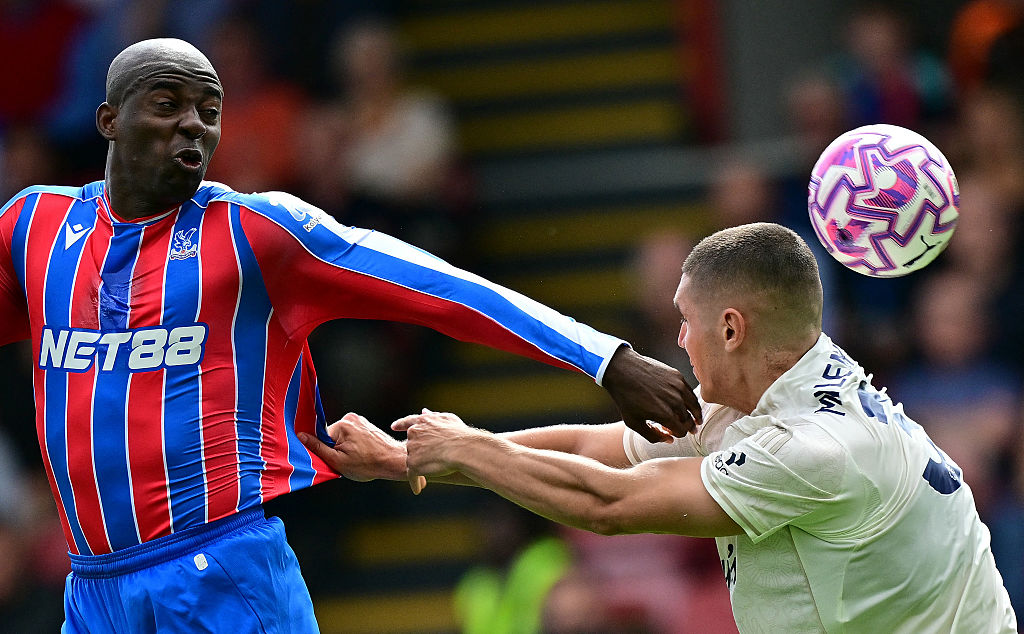PFA equalities executive Jason Lee wants commentators to address ‘racial bias’
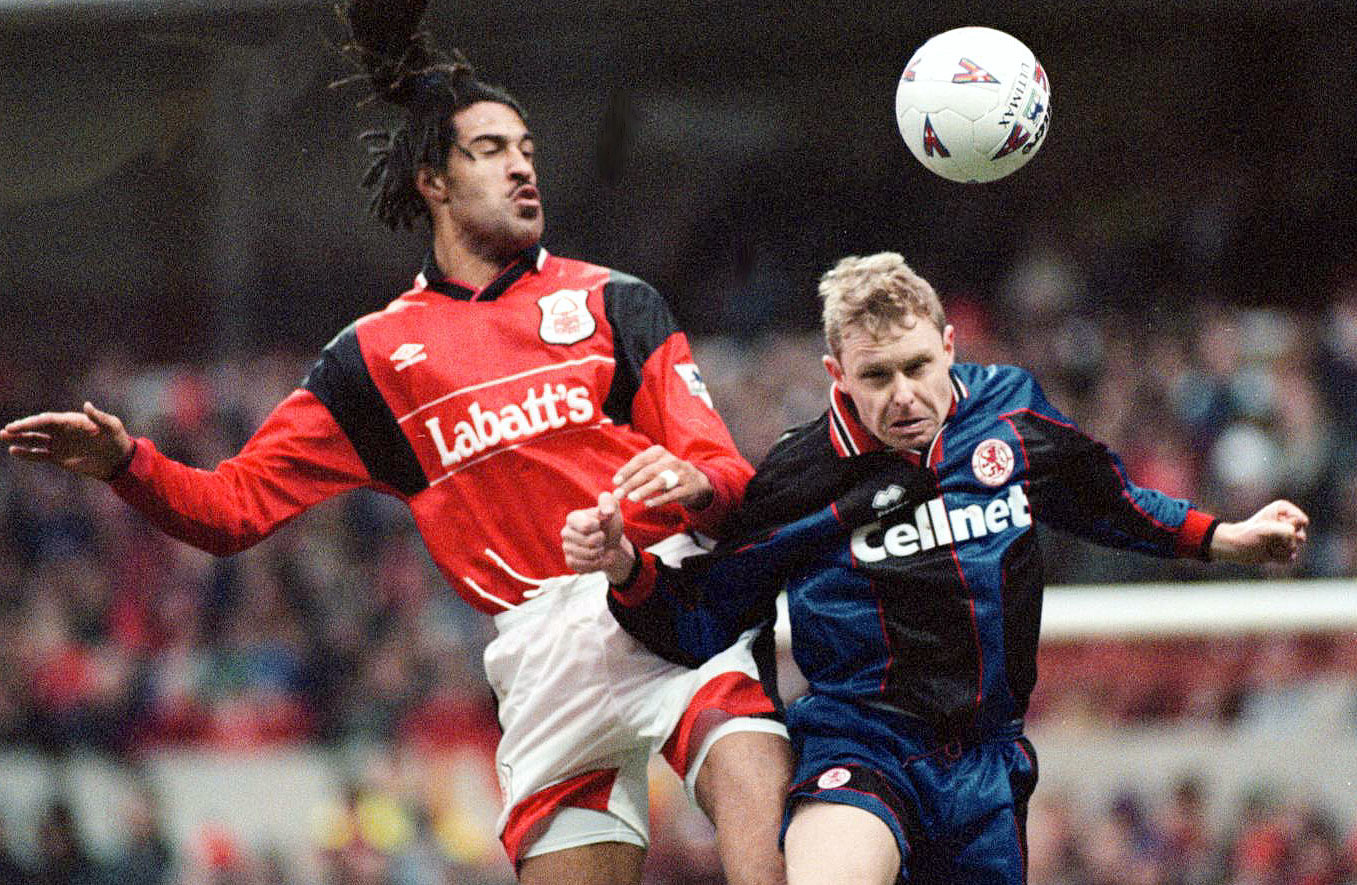
A study has found “evident bias” in how some football commentators describe darker-skinned players.
The study conducted by Danish research firm RunRepeat in association with the Professional Footballers’ Association found 62.6 per cent of praise regarding a player’s intelligence was aimed at those with lighter skin, while 63.33 per cent of criticism for a player’s intelligence was aimed at those with darker skin tones.
The findings also show that 60.4 per cent of praise for work rate was directed at lighter-skinned players.
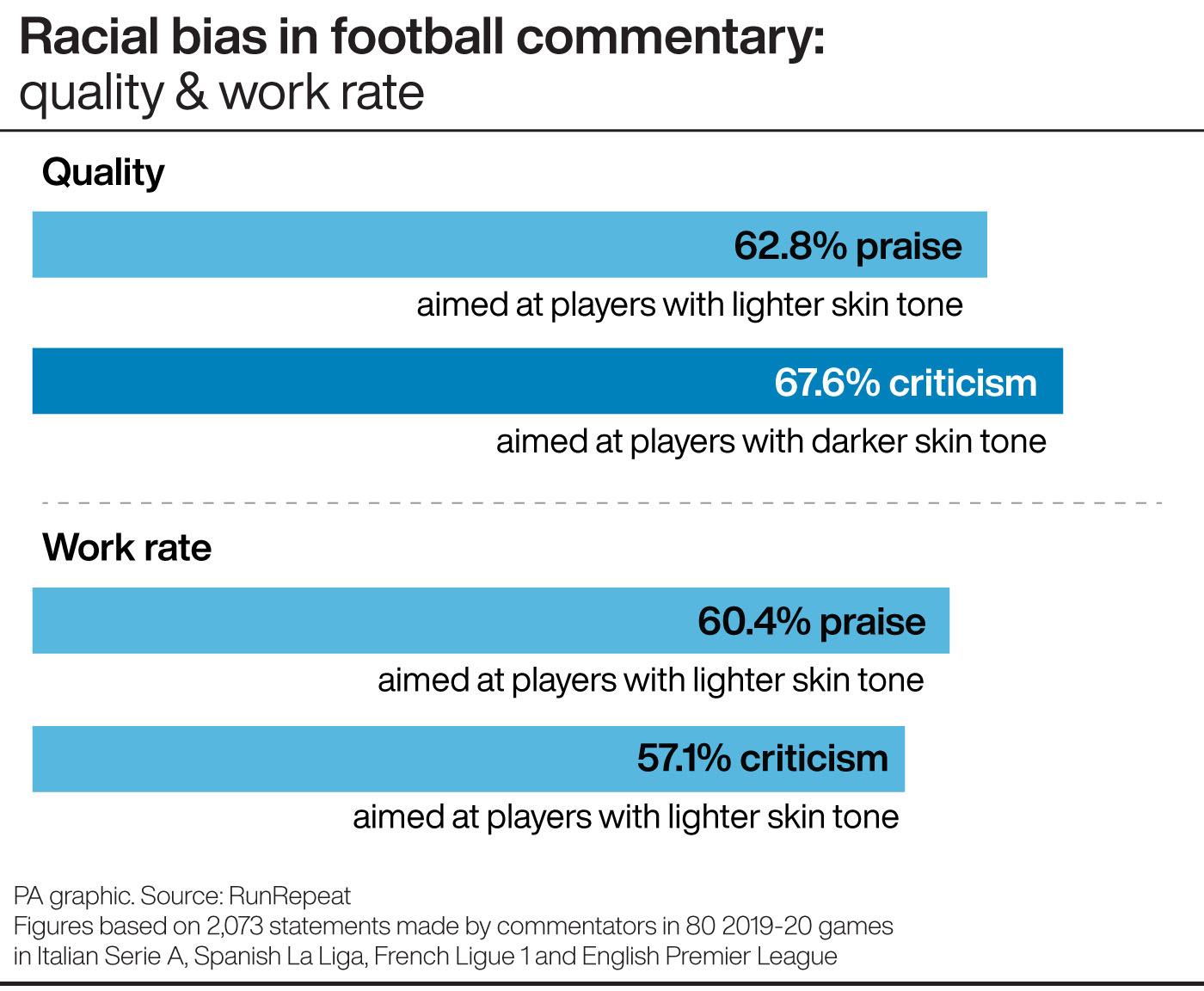
The study looked at a total of 80 matches played in the Premier League, Italy’s Serie A, LaLiga in Spain and Ligue 1 in France this season. The study looked at 2,073 statements made by broadcasters speaking in English working for media outlets in the United Kingdom, the United States and Canada.
It also said that commentators were 6.59 times more likely to talk about a darker-skinned player in reference to power, and 3.38 more likely to talk about darker-skinned players in reference to speed.
Skin tone was determined by the scale used on the Football Manager 2020 game, with those between one and 11 in the lighter-skinned group and those between 12 and 20 classified as darker-skinned.
“To address the real impact of structural racism, we have to acknowledge and address racial bias. This study shows an evident bias in how we describe the attributes of footballers based on their skin colour,” PFA equalities executive Jason Lee said.
The best features, fun and footballing quizzes, straight to your inbox every week.
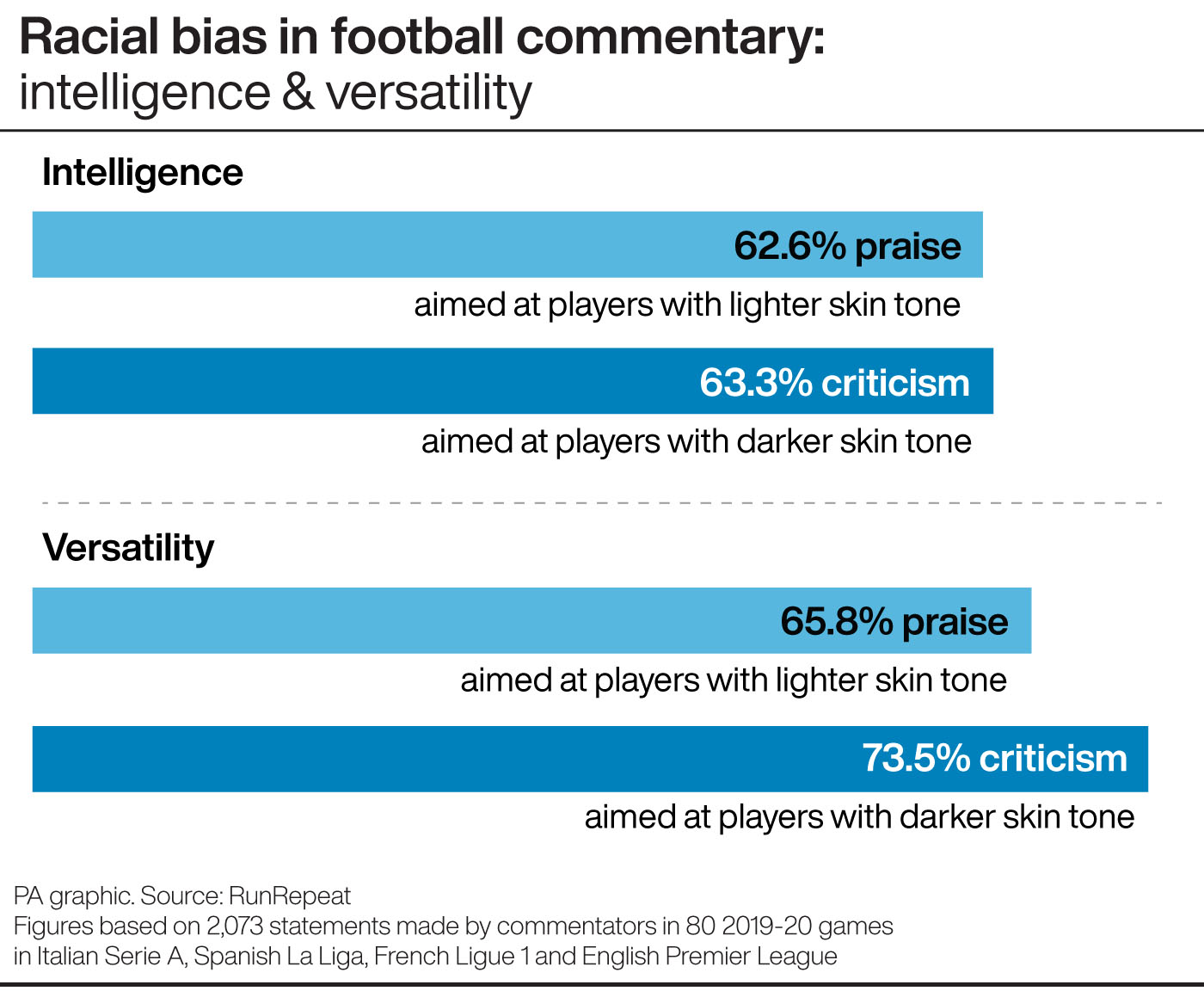
“Commentators help shape the perception we hold of each player, deepening any racial bias already held by the viewer.”
Lee believes it is vital for media organisations to offer unconscious bias training to their staff, and to promote diversity so that “ears are open” within the organisation to challenge those who slip into such bias.
“If you haven’t got people to bounce ideas off and to listen to what’s being said, and you haven’t got an open ear, how are you going to understand that what you’re doing is offending people if nobody is there challenging you and telling you, ‘That’s not right’,” he said.
Lee also suggests these descriptions can even impact on an individual’s ability to work in coaching or management when their playing career has finished.
“When you’re playing football and someone is painting the picture that you’re powerful, you’re quick, you’re aggressive – I mean they’re great traits to have, but you’re not saying ‘industrious, intelligent, creative’, you’re not using that terminology,” he said.
“Already it’s living up to that stereotype of black athletes – you can’t always say that a black athlete is going to be quick and is going to be strong.
“If you keep stigmatising people and saying this, that and the other, how is that athlete going to go from the training and playing field and be taken seriously as maybe a coach, a manager or another position of power?”
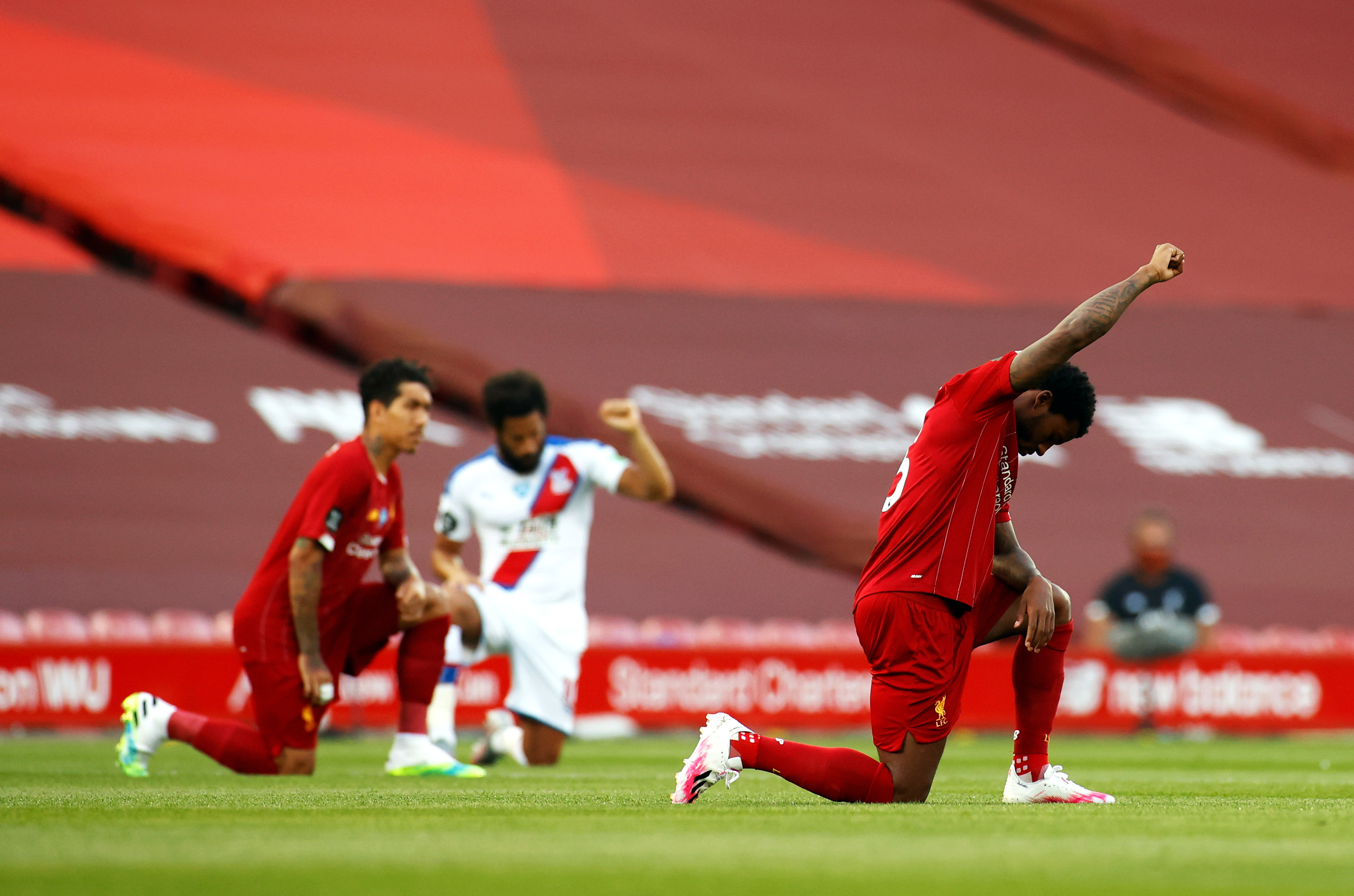
The report adds: “Players have been unified in their support of the Black Lives Matter movement, sending a strong message about equality.
“However, the players themselves still have to navigate systemically racist structures, despite their significant platforms and professional success. This racial bias study makes the nuances of that structure apparent.
“We now need everyone in football, including commentators and broadcasters, to consider the part they play in furthering implicit bias towards people with darker skin tones.”
 Join The Club
Join The Club





